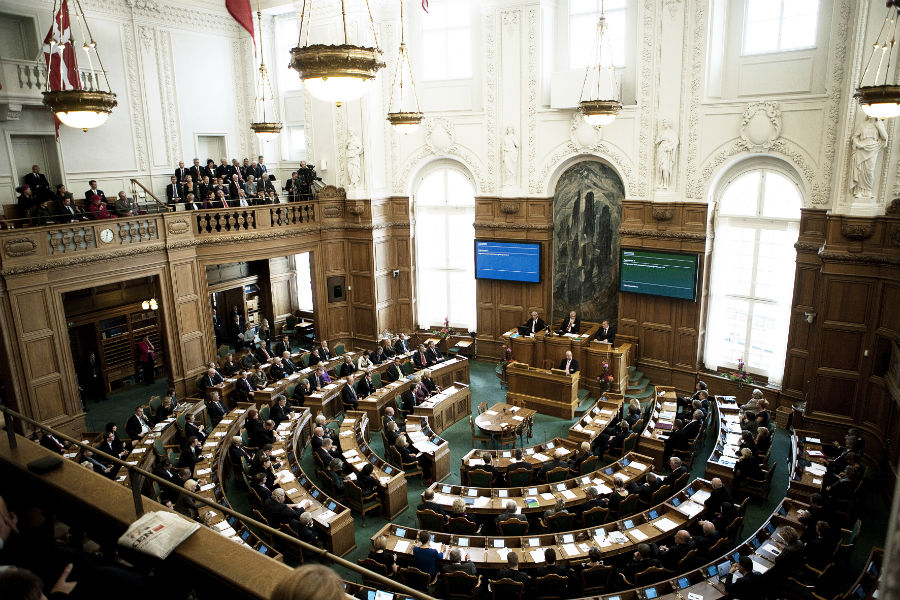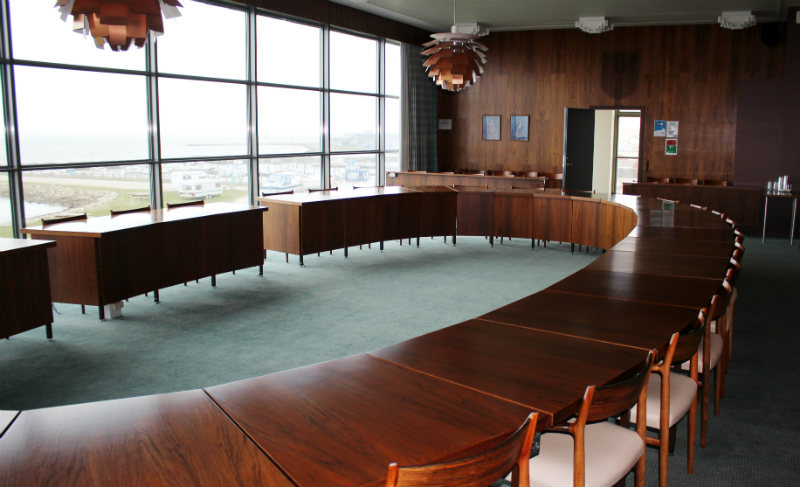Democracy and freedom of speech
In Denmark, we are very fond of – and also renowned for – our democracy and freedom of speech.
We have more than 1,300 laws in Denmark. However, the most important one is the Constitutional Act, which describes the basic rules of the Danish society. The Constitutional Act ensures our freedom of speech, freedom of religion, and freedom of assembly.
According to the Constitutional Act, the supreme power in Denmark is divided between the legislative branch– the Folketing (the Danish Parliament), the executive branch – the Government, and the judicial branch – the Courts.
The Danish democracy is called a representative democracy, and the right to vote is an important part of the democracy, because with their vote the Danes elect the ones who are going to represent them in the Folketing, the Regional Council, or the local Municipal Council, respectively. The ones, who are being elected, are called politicians, and they make the decisions on the development in society. They have the primary responsibility for the administration and running of all the public companies, institutions, and services, ranging from motorways, town- and country planning, police, and defense to hospitals, day nurseries, schools, and other institutions of education.
The public tasks are divided between the State, the 5 Regions, and the 98 Municipalities.

Foto: Folketinget - Fotograf Anders Hviid
FOLKETINGET is in charge of all legislation in the country, including the annual Finance Act which is decisive for the application of money in the entire public sector in the country. The Government is in charge of translating the legislation into practice as well as the daily governance of the country, including ministries, governing bodies, and major and specialised departments and institutions. The Folketing lays down the framework for these, including the economic, the regional and the municipal work.
The regions and the municipalities are governed by a regional council, headed by a chairman, and a municipal council/town council, and a mayor.
Denmark is part of a special co-operation between the Nordic Countries and is a member of the EU.
The Right to Vote and Eligibility
The right to vote is of decisive importance in the Danish democracy. Danish citizens have a right to participate in the elections, i.e. vote from the age of 18, and at the same time, they are eligible. This means that they have the right to run for elections in the elected bodies and assemblies. In Denmark, there is a long tradition for a high voter turnout.
Every fourth year there are elections for the Danish elected assemblies, excluding general election for the Danish Folketing where elections may be more frequent. Every fifth year elections to the European Parliament take place. Denmark has 13 of the 751 members.
As a foreigner residing permanently in Denmark, and if you are a citizen of the EU, Iceland, or Norway, you have the right to vote and are eligible for the regional and municipal elections. Citizens from other countries must have resided permanently in Denmark, Greenland, or the Faroe Islands for the past three years, prior to election day, to obtain the right to vote and eligibility.
Only Danish citizens can be elected and are eligible for the Folketing.

The meeting hall of Ringkøbing-Skjern town council - Foto:rksk